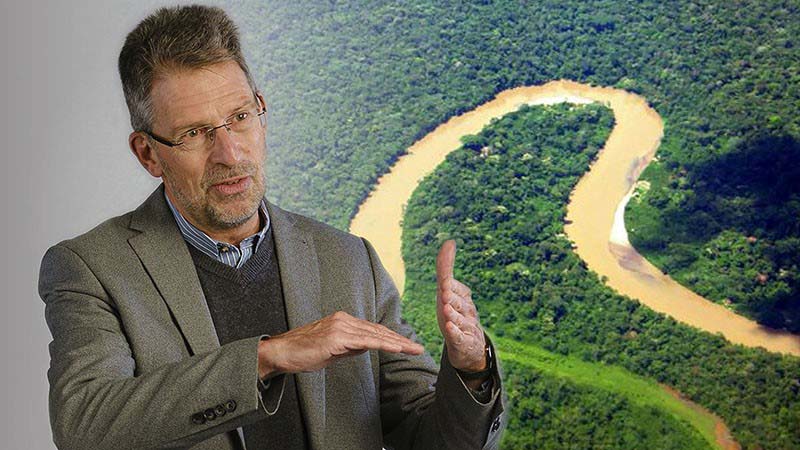Tracking carbon

Carbon-on-the-move' is a multi-scale challenge recognising the dynamic interactions between all major carbon pools, on Earth that sustain life with its unique ecosystems, control the environment and climate, and provide valuable energy.
Carbon is always on the move. From fractions of a second to 10s of millions of years, molecularly to globally, carbon is always operating at different rates and spatial scales. As it moves and intermittently settles, it supports life, controls climate and the environment and provides energy. Global warming is accelerating and difficult to predict but most probably with severe consequences for society and ecosystems. Understanding the controls and consequences on carbon cycling is critical for separating human impact from natural variability, as well as in underpinning our ability to adapt to future conditions.
Professor Thomas Wagner has established an international reputation in assessing the role and functioning of carbon and nutrients as primary drivers of ecosystems, climate change and energy resources. The nature of this research is inherently multi-disciplinary, combining environmental and geosciences with social, economic and political sciences.
Since 2016, he has led the Biogeochemistry Group of the Lyell Centre to pioneer new fundamental understanding on carbon-climate relationships and their impact on ecosystems and society. Focusing on earth surface processes, connecting land sources with ocean sinks, the research takes the team from remote areas in the core of the Amazon rainforest to coastal river and mangrove environments in tropical South America and SE Asia.
As active partners of large international programmes, such as the International Ocean Discovery Program, the team focuses on critical periods in the past, to explore the internal architecture of global climate perturbations and their consequences on past environments and evolutionary steps of life.
The Lyell Centre acts as a catalyst for this integrated research with Wagner's team developing a new portfolio of integrated understanding, knowledge exchange, and capacity building, tailored to address the grand sustainability challenges of our time.
Real-world impact
In a project with potentially ground-breaking impact on science and society, the team is focusing on the Amazon rainforest in Guyana and Colombia and combining climate, biodiversity, and community science under one umbrella. This provides the basis for quantifying forest ecosystem services that inform global financial compensation mechanisms and develop pathways for a sustainable future of this unique ecosystem.
Read more:
First geoscience team for Lyell Centre
Congo river mud records methane and emissions
Key information
Thomas Wagner
- Professor
- t.wagner@hw.ac.uk